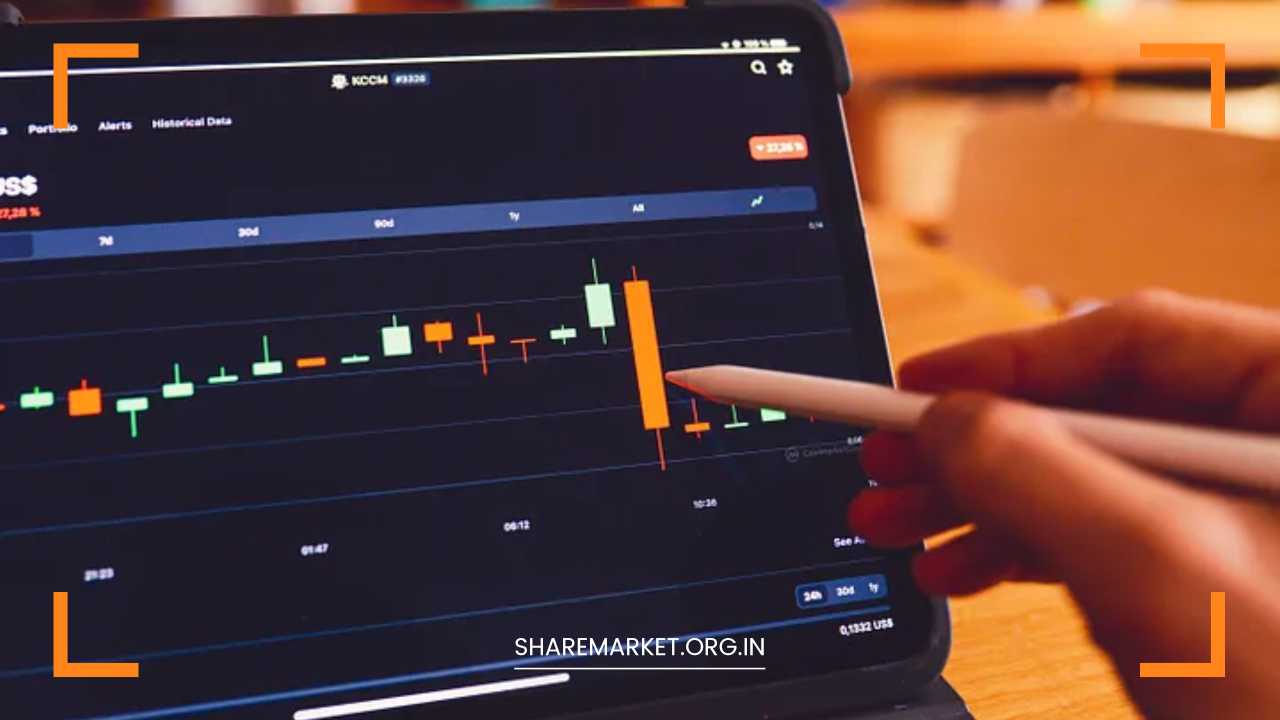Why Share Market Down Today

Why Share Market Down Today
Why Share Market Down Today? A Deep Dive into Market Movements
The stock market is a complex ecosystem influenced by a myriad of factors, both domestic and global. A sudden downturn can be unsettling for investors, but understanding the potential causes can help mitigate risks and make informed decisions.
Understanding Market Dynamics
Before delving into specific reasons for a market decline, it’s crucial to grasp the fundamental principles of market behavior.
Market Sentiment
Investor psychology plays a significant role in market dynamics. The collective emotions of fear, greed, and herd mentality can drive market trends. For instance, when investors are optimistic, they may push stock prices higher, leading to overvaluation. Conversely, negative sentiment can lead to sell-offs and declines. The sentiment is often influenced by news, economic data, and geopolitical events. Investors reacting to fear or uncertainty might sell off stocks, exacerbating market downturns.
Economic Indicators
Economic indicators are critical in shaping market performance. Key metrics include:
- GDP Growth: Gross Domestic Product (GDP) measures the total economic output of a country. Strong GDP growth generally indicates a healthy economy, leading to higher corporate earnings and stock prices. Conversely, weak GDP growth can signal economic problems and negatively impact stock values.
- Inflation: Inflation represents the rate at which the general price level of goods and services rises. Moderate inflation is normal, but high inflation can erode purchasing power and lead to higher interest rates, which can dampen economic activity and reduce stock valuations.
- Unemployment Rates: Unemployment rates measure the percentage of the labor force that is unemployed and actively seeking employment. A rising unemployment rate can indicate economic slowdown and lower consumer spending, which negatively impacts corporate profits and stock prices.
- Interest Rates: Central banks use interest rates as a tool to control economic activity. Lower interest rates generally boost economic activity by making borrowing cheaper, which can be positive for stocks. However, if rates are too low for too long, it can lead to inflation. Conversely, higher interest rates can slow economic growth and negatively affect stock prices.
Geopolitical Events
Geopolitical events include global conflicts, political instability, and trade tensions. These events can create market volatility by introducing uncertainty. For example, a geopolitical conflict can disrupt global supply chains or create economic sanctions that impact international trade. Trade tensions or tariffs can affect companies’ profitability by increasing the cost of imports or reducing market access.
Company Performance
The performance of individual companies can significantly impact stock prices. Key factors include:
- Earnings Reports: Quarterly earnings reports provide insights into a company’s profitability and operational efficiency. Disappointing earnings can lead to declines in stock prices as investors may fear declining profits.
- Product Launches: Successful product launches can boost a company’s stock price if they lead to increased revenue. Conversely, product failures can harm stock performance.
- Management Changes: Changes in executive leadership can affect investor confidence. A new CEO or CFO may bring new strategies or uncertainties that influence stock prices.
Industry Trends
Industry-specific developments can impact market segments. For instance:
- Technological Advancements: Innovations in technology can create new growth opportunities for companies, positively affecting their stock prices. However, they can also render existing technologies obsolete, impacting companies that fail to adapt.
- Regulatory Changes: New regulations or changes in existing ones can affect industry profitability. For example, stricter environmental regulations might increase costs for certain industries.
Potential Reasons for Today’s Market Decline
To pinpoint the exact reasons for a market downturn on a specific day, it’s necessary to analyze real-time news and data. However, based on historical patterns, the following factors could be contributing to today’s decline:
1. Economic Indicators
- Inflation Concerns: If inflation data is higher than expected, it can lead to fears of aggressive interest rate hikes by central banks. Such concerns can negatively impact stock valuations as higher rates can increase borrowing costs for companies and reduce consumer spending.
- GDP Growth: Slower-than-anticipated GDP growth can signal economic weakness, impacting investor confidence. Lower growth can lead to reduced corporate earnings and a more cautious outlook among investors.
- Unemployment Rate: An unexpected rise in unemployment can indicate economic slowdown, affecting corporate earnings and stock prices. High unemployment can reduce consumer spending, further impacting economic growth.
2. Interest Rate Movements
- Central Bank Actions: Decisions by central banks to raise interest rates to combat inflation can dampen economic growth and reduce corporate profitability. Higher rates increase the cost of borrowing, which can lead to reduced capital expenditures and lower consumer spending.
- Bond Yields: Rising bond yields often compete with stock returns, leading to a shift in investor preferences. When bond yields increase, fixed-income investments become more attractive compared to stocks, leading to sell-offs in the equity markets.
3. Geopolitical Tensions
- Global Conflicts: Escalating geopolitical tensions can increase market uncertainty and risk aversion. Investors may move assets to safer investments like gold or government bonds, causing declines in stock markets.
- Trade Disputes: Trade wars or tariff increases can disrupt global supply chains and impact corporate earnings. Companies that rely on international trade may face higher costs or reduced revenues due to trade barriers.
4. Company-Specific Issues
- Earnings Reports: Disappointing earnings results from major companies can trigger selling pressure. When prominent companies report weaker-than-expected earnings, it can signal broader economic problems and lead to declines in stock prices.
- Corporate Scandals: Negative news about a prominent company, such as fraud or mismanagement, can impact market sentiment. Scandals can lead to a loss of investor confidence and declines in stock prices.
- Industry-Wide Challenges: Sector-specific problems, such as supply chain disruptions or regulatory changes, can depress stock prices across an entire industry. For example, disruptions in semiconductor supply can impact technology companies’ stock prices.
5. Market Correction
- Overvaluation: After a prolonged period of upward movement, the market may undergo a correction to rebalance valuations. Overvalued stocks may face declines as investors reassess their prices based on more realistic expectations.
- Profit-Taking: Investors may sell their holdings to realize gains, leading to a temporary decline. Profit-taking is a natural part of market cycles and can contribute to short-term declines in stock prices.
Analyzing Market Trends
To gain a deeper understanding of market movements, consider the following:
Market Breadth
Assess whether the decline is broad-based or confined to specific sectors. A broad-based decline indicates widespread weakness across the market, while a sector-specific decline may suggest issues within particular industries.
Volume
High trading volume often indicates increased investor interest and potential for larger price swings. A significant increase in trading volume during a market decline can signal heightened investor activity and potential for further price movements.
Volatility Index
Monitor volatility indices like the VIX to gauge market fear and uncertainty. The VIX measures the expected volatility of the market based on options prices. A rising VIX indicates higher market anxiety and potential for increased volatility.
Technical Analysis
Use chart patterns and indicators to identify potential support and resistance levels. Technical analysis involves studying historical price movements and patterns to forecast future price behavior.
Fundamental Analysis
Evaluate company financials, industry trends, and economic indicators to assess long-term prospects. Fundamental analysis involves examining a company’s financial health, competitive position, and broader economic factors to make informed investment decisions.
Investor Behavior and Market Psychology
Understanding investor psychology is crucial for navigating market fluctuations.
Fear and Greed
Emotional reactions, such as fear and greed, can lead to impulsive decisions. Fear of losses may prompt investors to sell in a downturn, while greed may drive speculative behavior during bull markets.
Herd Mentality
Following the crowd can amplify market trends. Investors who follow the herd may contribute to market bubbles or exacerbate declines. It’s important to base investment decisions on individual analysis rather than simply following trends.
Risk Tolerance
Assessing your own risk tolerance helps make informed investment choices. Understanding your ability to withstand market fluctuations and losses can guide your investment strategy and help manage anxiety during downturns.
Long-Term Perspective
While short-term market fluctuations can be unsettling, maintaining a long-term investment horizon can help weather downturns. Diversification across different asset classes can also reduce portfolio risk.
Investors should focus on:
- Quality Companies: Investing in companies with strong fundamentals, such as solid earnings, robust balance sheets, and competitive advantages, can help weather market volatility.
- Diversification: Spreading investments across different asset classes, sectors, and geographic regions can reduce overall portfolio risk and enhance resilience against market declines.
- Long-Term Strategy: Adopting a long-term investment strategy can help investors stay focused on their goals and avoid making impulsive decisions based on short-term market movements.
Final Remarks
The stock market is inherently volatile, influenced by a complex interplay of economic indicators, interest rates, geopolitical events, company performance, and investor behavior. Understanding these factors can help investors navigate market downturns and make informed decisions.
Remember, attempting to time the market can be challenging and risky. Instead, focus on investing in quality companies with strong fundamentals and maintaining a diversified portfolio with a long-term perspective. By doing so, investors can better manage risks and potentially benefit from market recoveries over time.
Feel free to use this comprehensive overview to better understand market dynamics and the factors that can influence stock market movements. Always consider consulting with a financial advisor to tailor strategies to your individual needs and circumstances.
Disclaimer: The following article is a general overview of potential factors influencing market movements and does not constitute financial advice. It’s essential to conduct thorough research or consult with a financial advisor before making investment decisions.

















